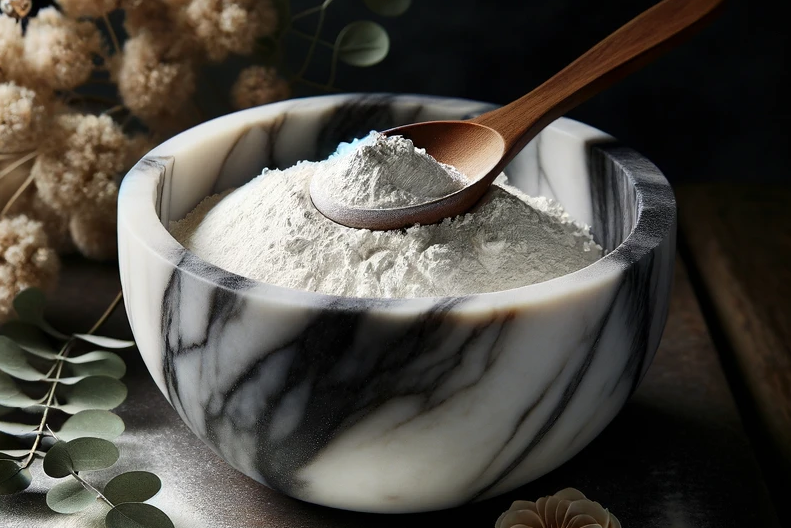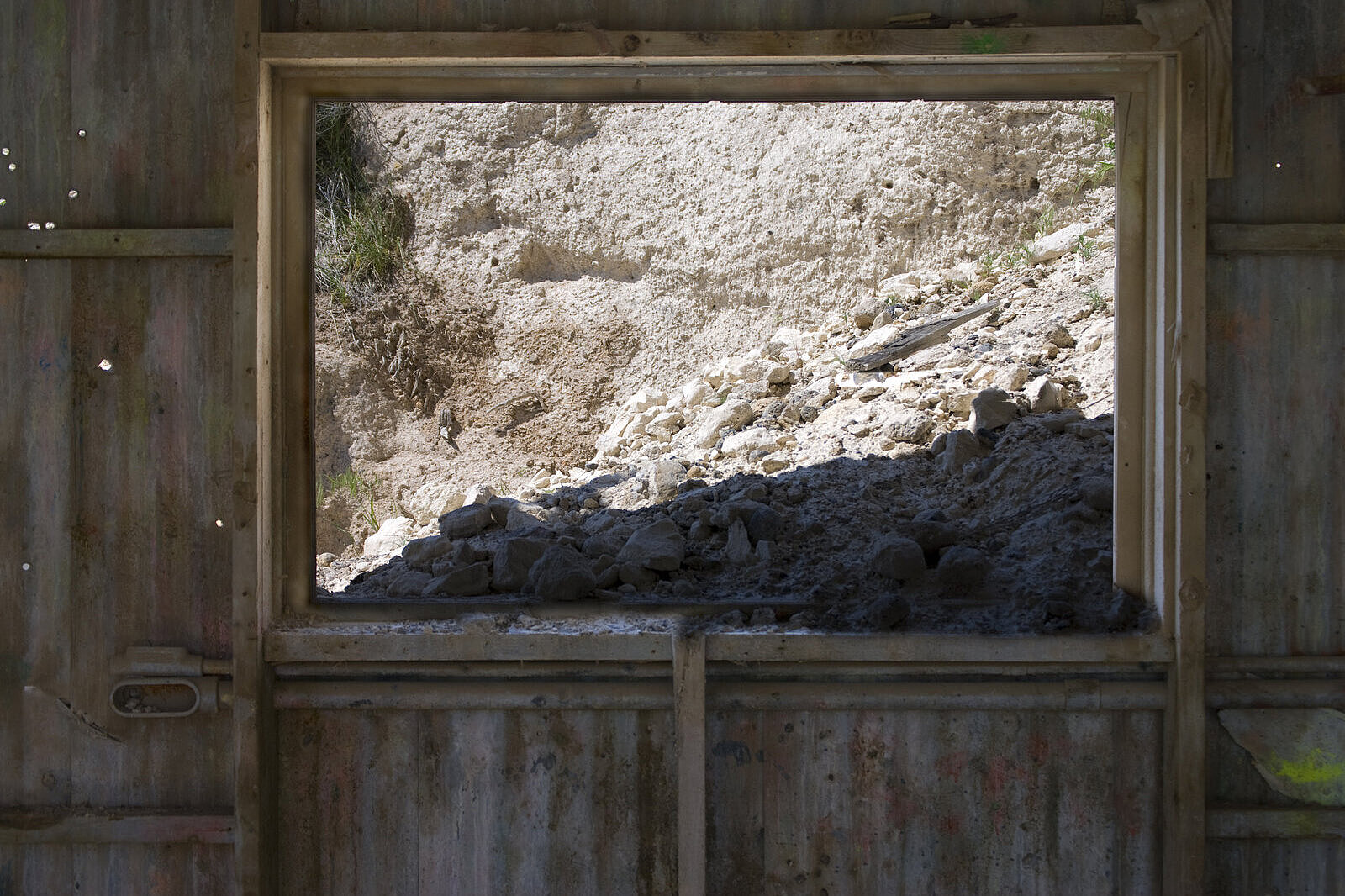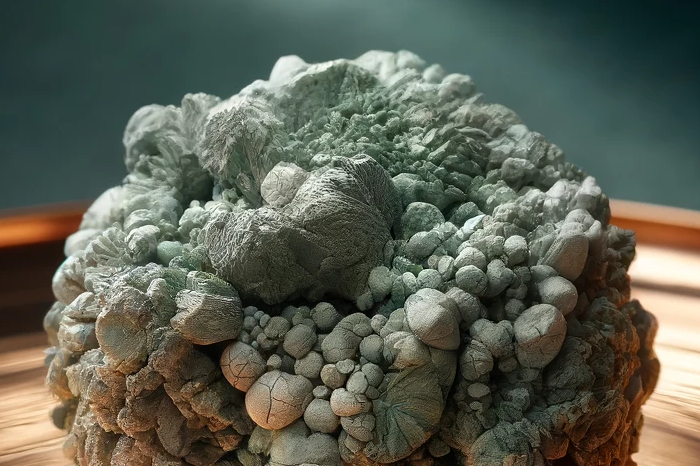Bentonite

What is bentonite?
Bentonite is a fine powder consisting of various clay minerals. The most important are montmorillonite, kaolinite and illite. These minerals have a platelet-like structure that can swell in water and form a gel film. This gel film has a high surface area and can bind many harmful substances such as mycotoxins, heavy metals, bacteria or viruses and excrete them from the body.
Bentonite also contains many natural minerals such as calcium, sodium, magnesium and iron, which are important for metabolism and bone formation.
How does bentonite work for dogs?
Bentonite can be used as a feed supplement for dogs to achieve various health benefits. The most important are
- Digestive support: bentonite can help prevent or relieve diarrhea, bloating or constipation. It regulates the water balance in the intestine and promotes the consistency of feces. It also protects the intestinal mucosa from irritation caused by acids or harmful substances.
- Harmonization of the intestinal flora: Bentonite can improve the balance of intestinal bacteria by binding and eliminating harmful germs. At the same time, it promotes the growth of beneficial bacteria such as Lactobacillus or Bifidobacterium, which are important for immune defense and nutrient absorption.
- Relieving the detoxification organs: Bentonite can relieve the liver and kidneys by binding and excreting harmful substances from the feed or the environment. This prevents these substances from entering the bloodstream and causing organ damage.
How to dose bentonite for dogs?
The dosage of bentonite for dogs depends on various factors, such as the dog's weight, state of health and reason for use. As a general rule, bentonite should always be mixed with sufficient water to achieve good swelling. You should also make sure that the dog drinks enough to avoid constipation.
A possible dosage recommendation is:
- For prevention: 0.5 to 1 gram of bentonite per kilogram of body weight per day
- For acute complaints: 2 to 4 grams of bentonite per kilogram of body weight per day
Bentonite can either be mixed directly into the feed or injected into the mouth as a paste. The duration of use depends on individual requirements, but should not be longer than four weeks without consulting a vet.
What are the advantages and disadvantages of bentonite for dogs?
Bentonite has many advantages for the health of dogs, but also some disadvantages that should be considered. The most important are:
Advantages:
- Natural product without additives
- High binding power for harmful substances
- Supports digestion, intestinal flora and detoxification
- Supply of minerals
- Good tolerance and acceptance
Disadvantages:
- Possible constipation if water intake is too low
- Possible impairment of nutrient absorption if the dosage is too high or if used for too long
- Possible interactions with medication or other feed supplements
- Possible contamination with heavy metals or other harmful substances if the quality is inferior
Bentonite is a natural mineral clay that can offer many health benefits as a feed supplement for dogs. It can support digestion, intestinal flora and detoxification by binding and eliminating harmful substances. It also contains many minerals that are important for metabolism and bone formation.
However, bentonite should always be mixed and administered with sufficient water to ensure good swelling and avoid constipation. In addition, the dosage and duration of use should be adapted to individual requirements and not exceeded in order to avoid impairing the absorption of nutrients or an interaction with medication or other feed supplements. You should also pay attention to the quality of the bentonite to avoid contamination with heavy metals or other harmful substances.
Properties 9
Are you looking for other ingredients with a specific property?
Just click on them to find more.
If you notice any signs of hypersensitivity or poisoning in your dog, you should see your vet immediately. We are not a substitute for a vet, but we try to be as accurate as possible. Every dog reacts differently and we recommend you get a second opinion or consult your vet if in doubt.
Stay healthy and take good care of your four-legged friend!😊
Similar to Bentonite
Kaolin, also known as china clay or white clay, is a naturally occurring white mineral consisting mainly of the mineral kaolinite. It is used in various industries, from ceramic production to...
Diatomaceous earth is a natural substance that contains no chemical additives. It is rich in silicon and other minerals that are important for the health of skin, hair and nails. Diatomaceous earth...
Zeolite is a naturally occurring, microporous mineral with a unique crystalline structure consisting of aluminum, silicon and oxygen. Its special ability to exchange ions and adsorb molecules makes...
A natural clay with unique properties Montmorillonite belongs to the group of smectite clay minerals and is characterized by its ability to absorb water and other substances between the clay...



